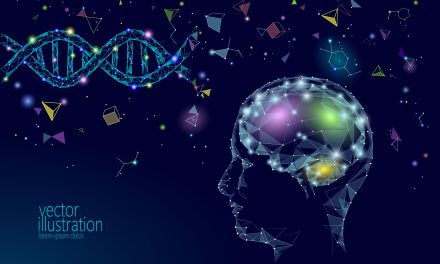Memory loss after pregnancy, often referred to as “mommy brain,” is a common concern among new mothers. The postpartum period brings with it a range of physical and emotional changes that can impact cognitive functions. Research indicates that lifestyle adjustments can play a significant role in mitigating memory challenges and improving overall brain health during this time.
Leveraging a combination of proper nutrition, exercise, and adequate sleep is essential for maintaining cognitive function. Simple strategies such as staying hydrated, participating in social activities for emotional support, and employing memory aids can also be helpful. Regular consultations with healthcare providers can ensure that any ongoing symptoms are well-managed and that the use of any medications or supplements is appropriate for the individual’s situation.
Key Takeaways
- Lifestyle choices significantly affect postpartum memory retention and can help in its improvement.
- Consistent healthcare consultations and appropriate use of supplements are beneficial for cognitive health.
- Combining physical activity with adequate rest, stress management, and cognitive exercises aids in memory preservation.
Understanding Postpartum Memory Loss
Many new mothers experience memory loss after pregnancy, which is an observed phenomenon with identifiable causes and biological factors.
Causes of Memory Loss After Pregnancy
- Hormonal Fluctuations: After childbirth, a woman’s body undergoes a rapid decline in hormones including estrogen and progesterone, which can affect cognition and memory.
- Sleep Deprivation: Care for newborns often leads to interrupted sleep patterns, contributing to memory loss and reduced cognitive function.
- Stress: High levels of stress hormones like cortisol are known to impair memory. New mothers often experience increased stress, which can affect their memory.
- Nutritional Deficiency: Essential nutrients which support brain health may be depleted during pregnancy, impacting memory postpartum.
Biological Changes Affecting Memory
- Brain Structure Changes: Research indicates that pregnancy can lead to structural changes in the brain, affecting areas that control memory and processing.
- Neurotransmitter Variations: Postpartum changes in neurotransmitters, chemicals that transmit signals in the brain, may also affect memory function.
Nutrition for Memory Enhancement
Optimal nutrition is crucial for enhancing memory function post-pregnancy, focusing on essential nutrients for brain health anchored by a balanced diet for recovery.
Essential Nutrients for Brain Health
The brain requires specific nutrients to function correctly. Omega-3 fatty acids, found in fish like salmon, are vital for brain health; DHA, a type of omega-3, is especially important for the growth and functional development of the brain in infants. Choline is another critical nutrient that supports brain development and memory function; eggs are a rich source. Antioxidants, including vitamins C and E, combat oxidative stress and can be found in berries and nuts.
B Vitamins, particularly B12 and folate, play a role in homocysteine metabolism, which, when regulated, may aid memory function. Lean meats, fortified cereals, and legumes are good sources.
| Nutrient | Source | Benefit |
|---|---|---|
| Omega-3 Fatty Acids | Salmon, walnuts, flaxseeds | Supports brain development and function |
| Choline | Eggs, liver, peanuts | Essential for brain development and memory |
| Antioxidants | Berries, nuts, dark chocolate | Protects brain cells from damage |
| B Vitamins | Lean meats, cereals, legumes | Helps regulate homocysteine metabolism |
Recommended Diet for Postpartum Recovery
After childbirth, a mother’s diet should focus on nourishment and rejuvenation to support both physical recovery and cognitive function. Complex carbohydrates from whole grains provide sustained energy, while lean proteins help repair tissues. For calcium and vitamin D, important for bone health, dairy products or fortified alternatives are recommended. Iron is essential to combat postpartum anemia; it can be found in red meat, poultry, and spinach.
A diverse diet filled with fruits and vegetables ensures a broad spectrum of vitamins and minerals. Hydration is also key, with water being the beverage of choice. Here is a sample meal plan suggestion for a day:
- Breakfast: Oatmeal with walnuts and berries, fortified with a glass of milk.
- Lunch: Grilled chicken salad with mixed greens, a variety of vegetables, and a slice of whole grain bread.
- Snack: Greek yogurt with a sprinkle of chia seeds and a banana.
- Dinner: Baked salmon, quinoa, and steamed broccoli.
Physical Activity and Cognitive Function
Maintaining an active lifestyle is essential for cognitive health post-pregnancy. Regular physical activity has been linked to improved memory and brain function in new mothers.
Benefits of Regular Exercise
- Enhanced Memory: Exercise increases the flow of blood and oxygen to the brain, which can enhance cognitive capabilities, including memory.
- Mood Improvement: Physical activity releases endorphins, which are natural mood lifters, potentially reducing feelings of postpartum depression that can indirectly affect memory.
Postpartum Exercise Guidelines
- Start Slowly: New mothers should begin with light exercises, such as walking or pelvic floor exercises, and gradually increase intensity.
- Doctor’s Approval: Before starting any exercise regimen, they should seek approval from their healthcare provider, especially if they had a C-section or complicated delivery.
- Consistency: Aim for at least 150 minutes of moderate-intensity aerobic activity per week, as recommended by health experts.
Sleep Optimization Strategies
Obtaining sufficient sleep is critical for cognitive function post-pregnancy. This section provides actionable strategies to enhance sleep quality and quantity.
Importance of Quality Sleep
Quality sleep is indispensable for memory consolidation, where short-term memories convert into long-term ones. Research underscores that uninterrupted sleep is a pillar of mental health, particularly important for new mothers coping with hormonal shifts and stress that can impact cognitive function.
Sleep Improvement Techniques
Following a consistent sleep schedule helps regulate the body’s internal clock, leading to better sleep quality. Below is a list of techniques to improve sleep:
- Establish a Regular Sleep Routine: Consistency with sleep and wake times can greatly benefit sleep quality.
- Create a Restful Environment: Ensure the bedroom is dark, quiet, and at a comfortable temperature.
- Limit Exposure to Screens: Avoid screens at least one hour before bedtime to reduce blue light interference.
- Mindful Relaxation: Techniques such as deep breathing or meditation can prepare the mind for sleep.
- Physical Activity: Regular exercise, ideally earlier in the day, can promote better sleep at night.
- Dietary Considerations: Avoiding large meals, caffeine, and alcohol close to bedtime can improve sleep quality.
Sleep practices are a simple yet effective component of maintaining memory and overall cognitive health post-pregnancy.
Stress Management Techniques
Effectively managing stress is crucial for maintaining memory health post-pregnancy. The techniques discussed aim to mitigate stress impacts and foster mental resilience.
Impact of Stress on Memory
Research indicates that stress can significantly impair cognitive functions, including memory. Cortisol, the stress hormone, impacts the brain’s memory center – the hippocampus – and can lead to memory issues post-pregnancy if not managed properly.
Relaxation and Stress-Reduction Practices
Incorporating stress-reduction practices is essential for memory preservation.
- Deep Breathing: Simple yet effective, this involves inhaling deeply through the nose, holding for a count of five, and exhaling slowly through the mouth.
- Guided Imagery: This practice entails envisioning a peaceful scene or location, engaging all five senses to create a serene mental escape.
- Progressive Muscle Relaxation (PMR): By systematically tensing and relaxing different muscle groups, it can help alleviate physical and mental stress.
- Mindfulness Meditation: Regular meditation fosters mindfulness, improving focus and reducing stress-related memory lapses.
By integrating these practices into one’s routine, they can secure their cognitive health and mitigate the negative effects of stress on memory after pregnancy.
Cognitive Exercises and Brain Training
Cognitive exercises and brain training can be vital tools in assisting new mothers to maintain and even enhance their memory post-pregnancy. These methods are designed to stimulate mental faculties and support cognitive health.
Mental Stimulation Activities
- Puzzles: Engaging regularly in puzzles such as crosswords, jigsaw puzzles, and Sudoku can challenge the brain and support memory retention.
- Reading: Dedicating time to read various genres stimulates the mind and enhances focus and concentration.
Brain Training Programs for New Mothers
- Structured Programs: Mothers can seek out programs specifically tailored to postpartum cognitive training.
- Online Platforms: Websites and applications like Lumosity or Elevate offer a series of games and tasks aimed at improving different aspects of cognitive function.
Hydration and its Effects on Memory
Proper hydration is crucial for maintaining optimal brain function and memory post-pregnancy. Staying hydrated helps to sustain cognitive abilities that can be affected during the postpartum period.
Role of Water Intake in Brain Function
Water comprises a significant portion of the human brain, influencing neuron function and overall brain health. Dehydration can lead to impaired attention, memory, and cognitive functioning. A hydrated brain is more efficient in transmitting signals, which is essential for memory formation and recall. Studies suggest that even mild dehydration can impact concentration and the processing of information.
Hydration Guidelines for Postpartum Women
Postpartum women should consume an adequate amount of fluids to compensate for water loss, especially if breastfeeding. The recommended water intake for postpartum women is approximately 2.3 liters (about 78 ounces) per day, though individual needs may vary. Here are specific guidelines:
- Non-Breastfeeding Postpartum Women: About 9 cups (2.2 liters) of fluids per day.
- Breastfeeding Women: About 13 cups (3.1 liters) of fluids per day.
These targets include fluids from water, beverages, and food:
| Source of Hydration | Suggested Daily Intake |
|---|---|
| Water | At least 8 cups (64 ounces) |
| Other Fluids | Up to 1-5 cups (8-40 ounces) |
| Water-Rich Foods | Balance remaining fluid needs |
It’s important for women to listen to their bodies and drink fluids accordingly, increasing intake if exercising or in a hot climate. Regular monitoring of hydration status, such as urine color — aiming for a pale yellow — can help in maintaining proper hydration levels for memory support.
Social Interaction and Emotional Support
Maintaining social connections and having emotional support can play crucial roles in preventing memory loss postpartum by ameliorating stress and bolstering cognitive engagement.
Social Engagement Benefits
Social interaction stimulates the brain through conversation and emotional connections. Research indicates that social engagement can help new mothers maintain cognitive functions and manage the stresses of postpartum life. Key components include:
- Regular Conversations: Engaging in meaningful dialogues promotes mental agility.
- Group Activities: Participating in mother groups or other social gatherings keeps the mind active.
Building a Support System During Postpartum
A robust support system offers practical and emotional benefits that can alleviate the cognitive load on new mothers, aiding in memory retention. To construct a solid support network:
- Identify Key Individuals:
- Close family
- Friends
- Healthcare providers
- Leverage Community Resources:
- Local motherhood programs
- Support groups
- Counseling services
By actively engaging in social interactions and establishing a support system, new mothers can better navigate the postpartum period with fewer cognitive difficulties.
Health Check-Ups and Professional Guidance
After pregnancy, a woman’s body goes through numerous changes, and maintaining cognitive health is essential. Health check-ups and professional guidance can be pivotal in preventing memory loss.
Importance of Regular Health Screenings
Regular health screenings are a cornerstone of postpartum care. They ensure that any physiological factors contributing to memory loss are identified and addressed. For instance:
- Thyroid Function Tests: Checking thyroid levels can reveal postpartum thyroiditis, which can impact memory.
- Iron Levels: Anemia can affect cognitive functions, hence, monitoring iron levels is beneficial.
When to Seek Help from a Professional
It’s crucial for new mothers to understand when memory issues warrant professional advice. Here are specific indicators:
- Persistent Memory Issues: If memory lapses interfere with daily life and persist beyond the initial postpartum period.
- Mood Changes: Professional help is necessary if memory loss is accompanied by mood swings, anxiety, or depression, as these can be signs of postpartum depression.
Memory Aids and Organizational Tools
Memory aids and organizational tools can significantly lessen the impact of memory loss post-pregnancy by providing structured reminders and systems to manage responsibilities.
Effective Use of Memory Aids
Digital Apps:
- Calendar Apps: Schedule appointments, family events, and baby’s milestones.
- Reminder Apps: Set up alerts for medication, meetings, and household tasks.
Physical Tools:
- Notebooks: Keep a daily journal of tasks, experiences, and thoughts.
- Checklists: Create daily to-do lists to track activities and baby care routines.
Organizational Strategies for New Mothers
Home Organization:
- Designated Spaces: Assign specific areas for baby supplies, bills, and important documents.
- Labeling: Clearly label storage containers for quick retrieval of items.
Time Management:
- Routine Schedules: Establish consistent daily routines for personal care and baby needs.
- Prioritization: Focus on completing high-priority tasks and consider delegating others.
Medications and Supplements
After pregnancy, certain medications and supplements may be beneficial in preventing memory loss and promoting cognitive health. It is crucial for individuals to consult healthcare providers to ensure these options are safe and effective for their specific needs.
Supplements for Cognitive Health
Omega-3 fatty acids, often found in fish oil supplements, have been associated with improved brain function. DHA (docosahexaenoic acid), a type of omega-3, is particularly important for neurological development and function.
| Supplement | Potential Benefit |
|---|---|
| Omega-3 Fatty Acids (DHA) | May support neurological development and cognitive function |
| B vitamins | Linked to energy production and may assist in reducing homocysteine levels, high levels of which are associated with cognitive decline |
| Iron | Vital for preventing anemia and possibly improving cognitive function if deficiency is present |
| Choline | Supports brain development and may aid memory function |
Vitamin D has also been linked to cognitive health, and deficiencies in this vitamin can negatively affect brain function.
Consulting Healthcare Providers Before Use
Before starting any new medication or supplement, it’s crucial to consult a healthcare provider. This ensures the chosen supplements are appropriate for one’s health status and don’t interfere with any postpartum conditions or medications.
- Assess for Interactions: Healthcare providers can identify potential interactions with current medications.
- Evaluate Health Needs: The provider can determine if a supplement is necessary based on dietary intake and individual health needs.
- Monitor Dosage and Safety: They help monitor correct dosages and advise on the safety of supplement use, especially when breastfeeding.
Frequently Asked Questions
Maintaining cognitive health after pregnancy involves a multifaceted approach. This section answers common queries regarding measures to prevent memory loss during the postpartum period.
What dietary adjustments can support brain health during postpartum?
Incorporating foods rich in omega-3 fatty acids, such as salmon and flaxseeds, supports brain health. A balanced diet with sufficient iron and vitamin B12 also contributes to cognitive function.
Are there any specific mental exercises recommended for improving memory after childbirth?
Engaging in mental activities like puzzles and memory games can bolster memory. Regularly practicing these exercises might help new mothers sharpen their cognitive skills.
What role do sleep patterns play in addressing postpartum cognitive changes?
Quality sleep is vital for cognitive recovery. New mothers should strive for regular sleep schedules, even if it means taking short naps throughout the day to compensate for interrupted night-time sleep.
Can physical activity contribute to reducing postpartum brain fog?
Moderate physical activity, such as walking or postnatal yoga, enhances blood flow to the brain and can help alleviate symptoms of brain fog. It’s beneficial to start with light activities and gradually increase the intensity.
What are effective stress management techniques for new mothers experiencing memory challenges?
Stress management is important and can include practices such as mindfulness meditation and deep-breathing exercises. These techniques help regulate the body’s stress response and may improve cognitive functions.
How long is memory impairment typically expected to last following the birth of a child?
Memory impairment post-pregnancy is usually temporary. Most women see improvements in their cognitive functions within the first year after childbirth, but it may take longer for some individuals. Consulting with a healthcare provider is advisable if concerns arise.
Conclusion
In conclusion, the journey to prevent memory loss after pregnancy encompasses essential strategies that new mothers can implement to support their cognitive well-being. This guide has highlighted the significance of adequate rest, balanced nutrition, mental stimulation, and seeking support from healthcare professionals. By prioritizing self-care, establishing a supportive network, and being mindful of postpartum mental health, new mothers can take proactive steps to mitigate memory loss and promote overall cognitive function during this transformative period. It is crucial for new mothers to be patient with themselves, seek assistance when needed, and embrace a holistic approach to maintain their cognitive well-being while navigating the joys and challenges of motherhood.


















